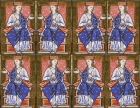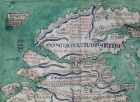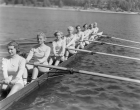Classroom Resources
The HA has spent a great deal of effort in developing resonant support for the Key Stage 2 curriculum. Most you will find here, especially the articles and reviews from Primary History. Read more
Sort by:
Date (Newest first) | Title A-Z
Show:
All |
Articles |
Podcasts |
Multipage Articles
-

'Doing Local History' through maps and drama
ArticleClick to view -

A History of the World: 100 objects that tell a story
ArticleClick to view -

A Local History Toolkit
ArticleClick to view -

A creative Egyptian project
ArticleClick to view -

Ancient Sumer
ArticleClick to view -

Anglo-Saxon Women
ArticleClick to view -

Artefacts and art facts: images of Sir Francis Drake
ArticleClick to view -

Artefacts handling at Brunel's SS Great Britain
ArticleClick to view -

Bring on the iPad revolution
ArticleClick to view -

Britain from the Iron Age to Robin Hood
ArticleClick to view -

Britain's settlement by Anglo-Saxons and Scots
ArticleClick to view -

Case Study: Historical information and the local community
ArticleClick to view -

Case Study: Hit the net!
ArticleClick to view -

Case Study: Prehistory in the primary curriculum: A stonehenge to remember
ArticleClick to view -

Celebrate your sporting heritage
ArticleClick to view -

Chronology through ICT
ArticleClick to view -

Constructivist chronology and Horrible Histories
ArticleClick to view -

Curriculum Planning: which non-European society might we offer at school?
ArticleClick to view -

Doing History with Objects
ArticleClick to view -

English Heritage's Heritage Explorer
ArticleClick to view

